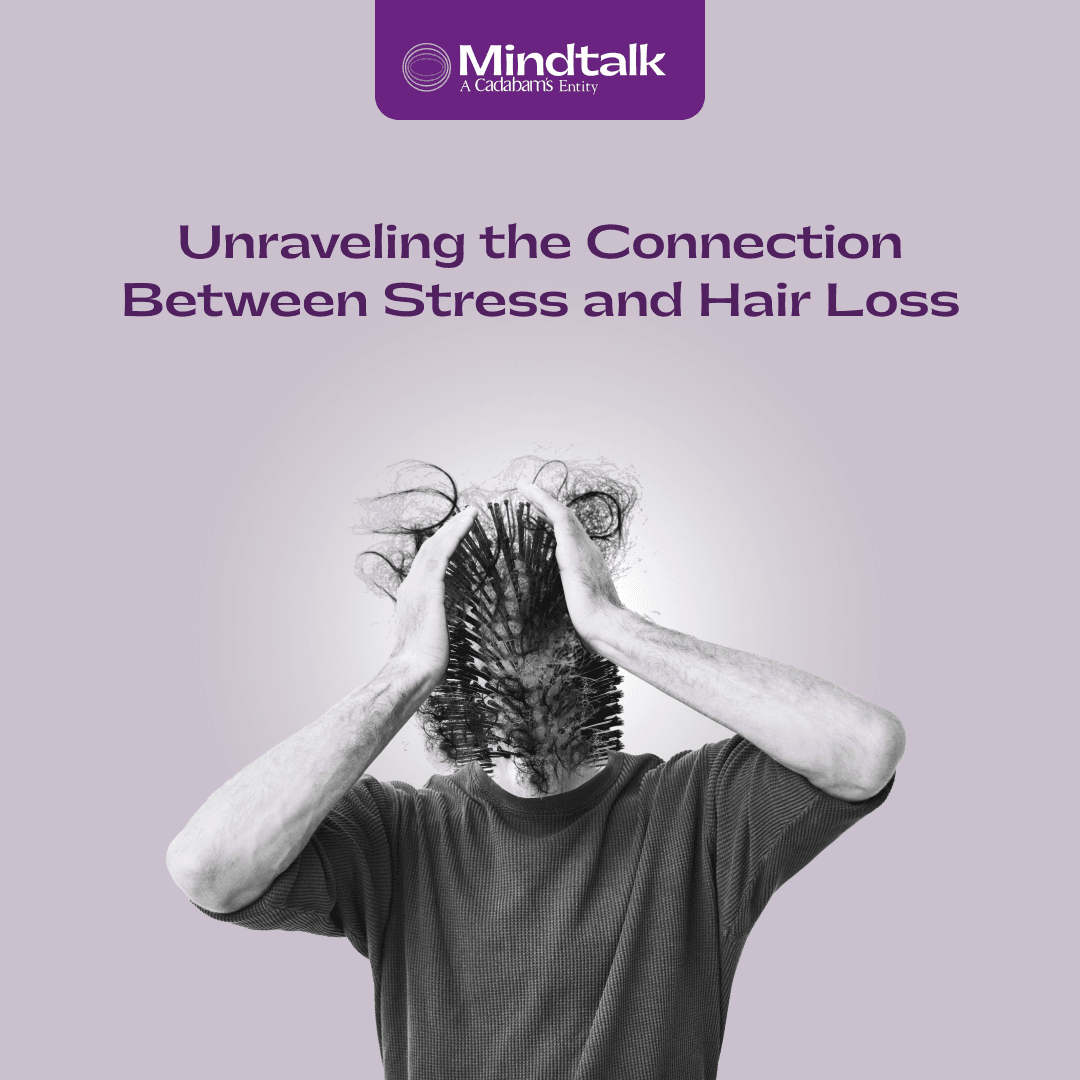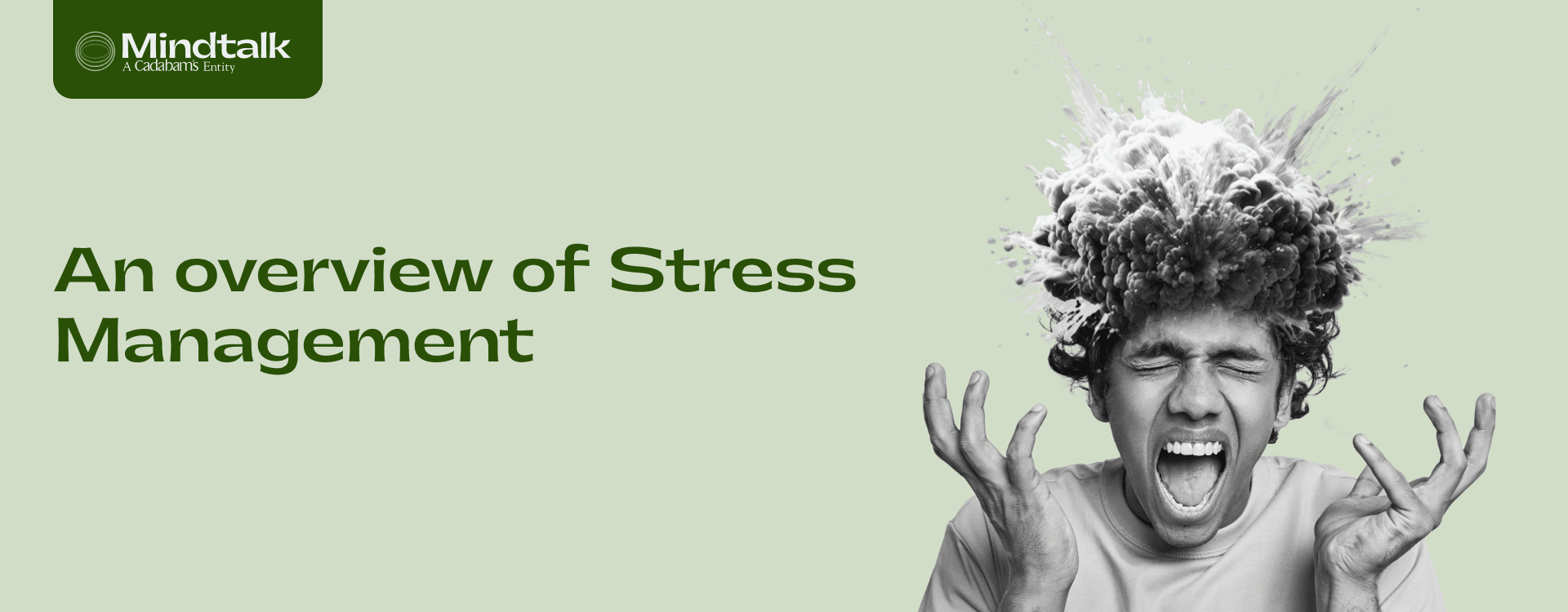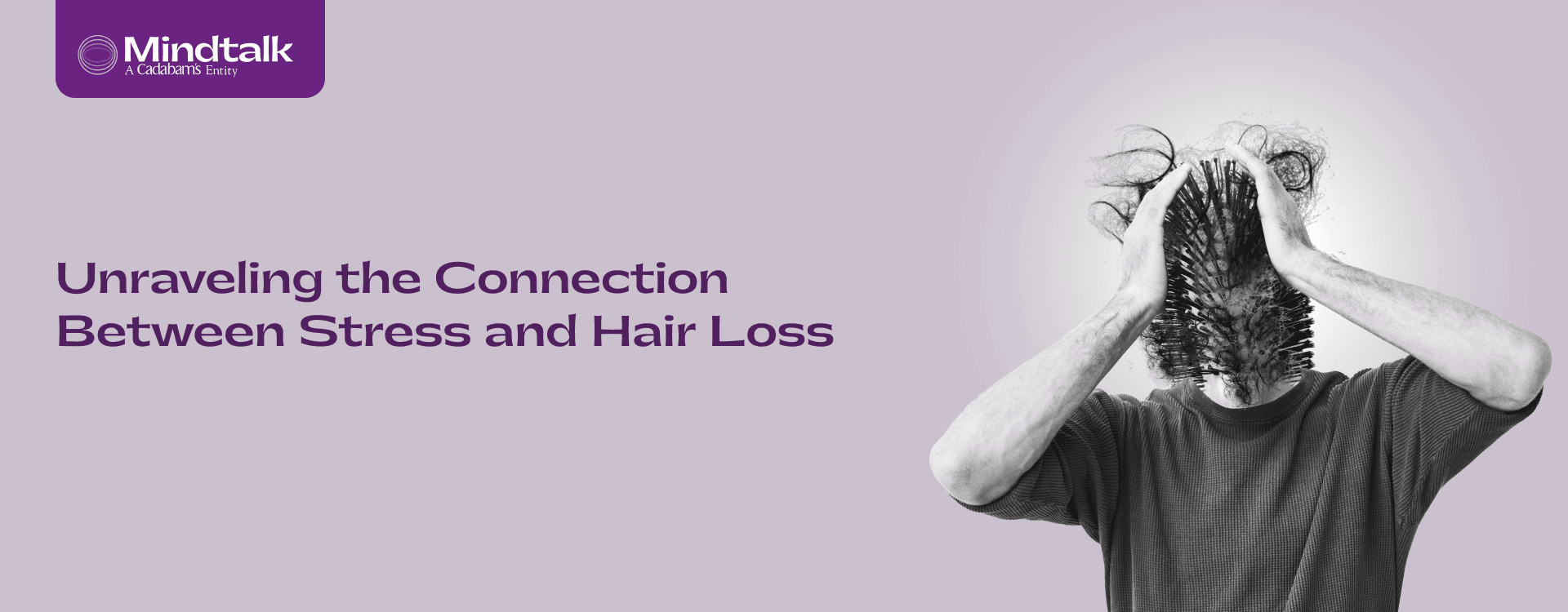Unraveling The Connection Between Stress And Hair Loss

Have you ever noticed an increase in hair falls during a particularly stressful period? It’s not uncommon for many individuals to experience hair loss due to stress. Forget about external stressors; losing hair itself is a stressful situation. To know that stress can lead to hair loss, stay till the end of this blog. Let’s unravel the answer to whether stress causes hair loss.
Understanding Stress-Induced Hair Loss
Stress-induced hair loss sets apart from other causes of hair thinning or loss; it has many distinct features. You start to experience excessive hair loss after a major stressful event, which is different from the normal loss of 50-100 strands daily. The excessive shedding due to stress is gradual, starts a couple of months later, and usually lasts for 3-6 months. But there’s a good thing: it is temporary and reduces your stress goes away. No visible pattern of stress-induced hair loss; it falls evenly throughout the scalp while combing or shampooing.
How Does Stress Cause Hair Loss?
Firstly, you should know how hair grows. It involves three stages first is anagen, where hair grows actively; catagen, which involves the shrinkage of hair follicles; and telogen, where the growth stops, goes to the resting phase, and shedding increases. Stress causes inflammation around hair follicles that messes with the hair growth cycle. This happens because stress hormones like cortisol disrupt communication between the nervous and immune systems. It also makes the hair growth resting phase longer and shed earlier.
Types Of Stress-Induced Hair Loss
We’ve established that stress causes hair loss, but there are three different types of hair loss associated with chronic stress. Every stressed-out person experiences different levels of hair loss.
Telogen Effluvium: Stress As A Trigger
85% of a person's hair follicles are in the anagen phase, and the rest are in the telogen phase. Telogen effluvium pushes 70% of anagen hair into telogen because of stressors. A large number of anagen hairs prematurely enter the telogen phase, which ultimately causes excessive hair loss. This type of hair loss occurs due to stress related to weight loss, childbirth, and stressors like death, divorce, or job loss. It also occurs due to major surgeries or nutritional deficiencies.
Alopecia Areata: When Stress Affects The Immune System
Chronic stress sometimes affects the immune system, disrupting the growth phase of hair follicles and forcing them to shrink (catagen phase). The stem cells are not destroyed, and because of this, the hair regeneration cycle continues. Initially, you might see small bald patches on the scalp, which may lead to overall hair loss on the scalp or body. Stressful life events are considered an important factor that triggers alopecia areata.
Trichotillomania: Stress-Related Hair Pulling
Trichotillomania is a psychological condition that is part of OCD and has characteristics like repeated hair pulling anywhere on the body. It happens due to a stressful situation right before the behavior; it acts as a coping mechanism for excessive stress or anxiety. It can be referred to as a mental health condition, as the pulling can lead to noticeable bald patches. The exact cause is unknown, but stress is believed to be a trigger for many individuals.
How Can I differentiate Stress-Related Hair Loss From Other Types?
Stress is not the only cause of hair loss, several factors need to be considered when analyzing the cause of hair loss.
Pattern: Stress-induced hair loss happens in scattered patterns, falling out evenly without patches throughout the scalp. Other reasons for hair loss generally follow a pattern, like a receding hairline or thinning at the crown.
Beginning and duration: stress-related hair loss begins after a stressful event and resolves after the stress subsides. Other causes can lead to sudden or gradual hair loss, which is unrelated to specific events.
Symptoms: stress-related hair loss brings in symptoms like anxiety, sleep problems, loss of appetite, or fatigue. Other causes may include specific symptoms related to the disease.
Medical conditions: stress itself can trigger hair loss, while certain medical conditions and hormonal imbalances contribute to hair loss.
Managing Hair Loss Due To Stress
Hair loss due to stress subsides as the stressor goes away, but it can still be a concerning and frustrating experience. To avoid the effect stress has on the body and hair, you can try different strategies. Addressing stress and trying various management techniques are some ways to start.
Diet And nutrition
A healthy, balanced diet rich in nutrients can promote healthy hair growth and well-being. Include essential nutrients that your body needs, like various fruits, vegetables, whole grains, and lean protein sources. Drink plenty of water. Avoid processed foods as they contain high amounts of sugar, unhealthy fats, and sodium, which can cause inflammation. Take generous amounts of protein, iron, and biotin, contributing to healthy growth.
Enough Sleep
Not getting enough sleep can elevate stress levels. The hormone cortisol disrupts sleep quality and duration; it can also cause difficulty falling asleep, staying asleep, or frequent awakenings. Hair growth generally occurs during the deepest stages of sleep, as it releases growth hormones that regenerate and repair cells, including hair follicles. Stress can cause sleep deprivation, disrupting the body’s hormonal cycle.
Stress Management Techniques
Stress management techniques can help you regain control, improve your overall well-being, and live a fulfilling life. They equip you with strategies for navigating stress.
Cognitive Behavioral Therapy (CBT)
A therapist who specializes in CBT can help develop a personalized treatment plan to cater to your specific needs. They can guide you through the process of identifying and challenging negative thoughts, building coping skills, and effectively reducing stress. CBT can build your confidence and resilience, significantly reducing stress-induced hair loss.
Yoga And Exercise
The cause of your stress can be anything like frustration, which generally affects your well-being. Practicing yoga and exercise in your daily routine can significantly help manage stress and potentially promote healthy hair growth. The body releases endorphins while exercising that counter stress hormones like cortisol and boost mood. Regular exercise can improve your sleep cycle, which is crucial for hair growth. Yoga is a mindful activity that promotes relaxation and reduces stress. It can also increase your confidence and resilience.
Balanced Diet
A nutritious diet provides support to manage stress and promotes healthier hair growth. There are essential nutrients like protein, iron, biotin, vitamin A, vitamin C, and omega-3 fatty acids that keep your body in optimal health. Nutrients in fruits, vegetables, and whole grains provide antioxidants that help combat the effects of cortisol. Include fish, poultry, beans, legumes, and nuts for protein; red meat, leafy green vegetables, and lentils for iron; eggs, sweet potatoes, and avocado for biotin. Consider consulting a dietitian for a personalized meal plan.
Minimize Your Hair Loss Caused By Stress With Mindtalk
Stress wreaks havoc in one’s life; it affects an individual physically and mentally and can lead to hair loss. At MindTalk, we listen to your problems with genuine empathy and help you find the root cause of your stress. We believe in a holistic approach to solving your issues. That’s why we provide you with a personalized treatment plan catering to your specific needs. We can teach you various coping mechanisms to fight stress and stop hair issues. Stress-induced hair loss can be prevented or solved by taking a few measures. Reach out to us if you are struggling with stress-induced hair loss. We are here to help.













